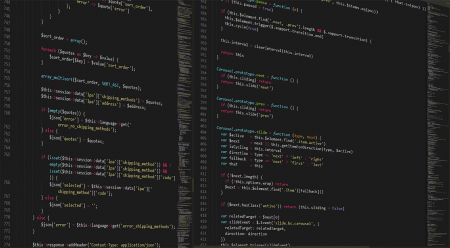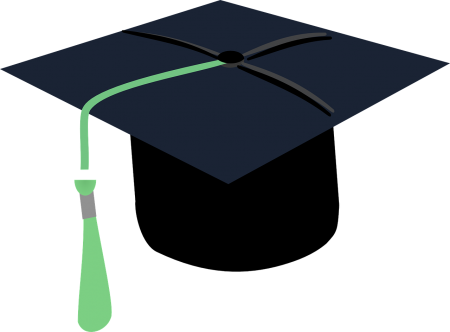It was in 1620, in the time of King James the
It was in 1620, in the time of King James the First. English people did not like their king and called him The Foolish King of England. Many of them even left England and went to live in other countries.
In November, 1620, a small ship, the Mayflower, left England. There were about on hundred people aboard the ship, but even for this hundred the ship was too small. For seven long weeks the Mayflower was in the waves and storms of the Atlantic Ocean, and at last the people saw land. It was America.
It was already autumn.
Sixteen men left the Mayflower and went ashore. In the evening they came back to the ship and brought some maize with them. They found the maize in the sand on the beach where the Indians had left it. Nobody in Europe had seen maize then, but when the people on board the Mayflower tried it they liked it very much.
On Monday some men went ashore again and this time they took some women with them. The women had to wash the clothes. Since that time Monday has been a wash-day in America.
During the next five weeks the men from the Mayflower left the ship every day. There were looking for a good place to live. The weather was very cold, more and more men fell ill. The people began to build a village there.
By January, 1621, there were already two streets in this village, and they called it New Plymouth.
It was winter now.
The people were tired and cold. They did not have enough to eat. More and more of them fell ill. There was a time when only seven men wer quite well. Many people died. When the houses were ready, the life of the people became easier; they had warm houses where they could live.
One day the people of the village suddenly saw a tall Indian who was walking along the street. They were frightened very much, but this Indian came up to them, smiled and said. Hallo, Yankee! Hallo, Yankee!
This Indian could speak English a little. He had learnt the language from the sailors of a ship which had come to this part of America a few years before.
A few days later this Indian came to the village again together with some other Indians. They came as friends and helped the white men very much.
But white men forgot about this help very quickly; a few years later when many people from Europe came to America, they began to take the land away from the Indians and to kill them.
All Indians who came to the village of New Plymouth called the Englishmen Yankee, and since that time Yankee has been the name of a white man in America.
At last spring came. The people of New Plymouth began to plant corn, and the Indians showed them how to plant maze.
In autumn the crops were very good and the people of New Plymouth wanted to make a holiday dinner. They asked the Indians to this dinner, and the Indians brought some wild turkeys as a present.
The turkey was an American bird. Very few people in Europe had ever heard about it, but when they ate it at this dinner they liked it very much.
The people of New Plymouth called their holiday Thanksgiving Day. Since that time Thanksgiving Day has been a great holiday in the United States of America, and since that day Americans have always had turkeys for the Thanksgiving Day.
В ноябре 1620 года малюсенький корабль Мэйфлауэр покинул Великобританию. На борту корабля было около сотки человек, но даже за эти 100 лет корабль был очень мал. В течение 7 длинных недель Мэйфлауэр был в волнах и штормах Атлантического океана, и в конце концов люди узрели землю. Это была Америка.
Была уже осень.
Шестнадцать человек покинули Мэйфлауэр и сошли на сберегал. Вечерком они возвратились на корабль и привезли с собой кукурузу. Они отыскали кукурузу в песке на пляже, где индейцы оставили его. Никто в Европе не видел кукурузы тогда, но когда люди на борту Mayflower пробовали это, они им очень приглянулись.
В понедельник некие мужчины опять вышли на сберегал, и на этот раз они взяли с собой нескольких женщин. Женщинам приходилось стирать одежку. С того медли пн был умытым деньком в Америке.
В течение следующих 5 недель мужчины с Mayflower покидали корабль каждый денек. Там разыскивали хорошее место для жизни. Погода была очень холодной, все больше и больше мужчин заболевали. Люди начали строить там деревню.
К январю 1621 года в этой деревне теснее было две улицы, и они окрестили ее Нью-Плимут.
Сейчас была зима.
Люди утомились и промерзли. Им не хватало пищи. Все больше и больше из них заболевали. Было время, когда только семь человек были в полном порядке. Много людей погибло. Когда дома были готовы, жизнь людей стала легче; У их были теплые дома, где они могли жить.
Единожды обитатели деревни неожиданно увидели высочайшего индийца, который шел по улице. Они очень испугались, но этот краснокожий подошел к ним, улыбнулся и произнес. Привет, янки! Привет, янки!
Этот индеец мог немножко говорить по-английски. Он выучил этот язык у моряков корабля, который прибыл в эту часть Америки несколько лет назад.
Через несколько дней этот индеец опять приехал в деревню вместе с некими иными индейцами. Они пришли как друзья и очень посодействовали белоснежным людям.
Но белые люди очень живо забыли об этой поддержки; Несколько лет спустя, когда многие люди из Европы приехали в Америку, они начали отбирать землю у индейцев и убивать их.
Все индейцы, которые приехали в деревню Нью-Плимут, называли британцев янки, и с тех пор янки носили имя белоснежного человека в Америке.
В конце концов-то наступила весна. Люди в Нью-Плимуте начали сажать кукурузу, и краснокожие показали им, как сажать лабиринт.
Осенью сбор был очень превосходным, и обитатели Нью-Плимута хотели устроить торжественный ужин. Они попросили индийцев на этот обед, и краснокожие принесли некие бешеные индюки в подарок.
Индейка была американской птицей. Немногие в Европе когда-или слышали об этом, но когда они съели его на этом ужине, им это очень понравилось.
Жители Нью-Плимута окрестили свой праздничек Деньком благодарения. С того времени Денек благодарения был великолепным праздником в Соединенных Штатах Америки, и с того денька у янки всегда были индюки на Денек благодарения.
-
Вопросы ответы
Статьи
Информатика
Статьи
Математика.
Физика.
Математика.
Разные вопросы.
Разные вопросы.
Математика.
Разные вопросы.
Математика.
Физика.
Геометрия.




